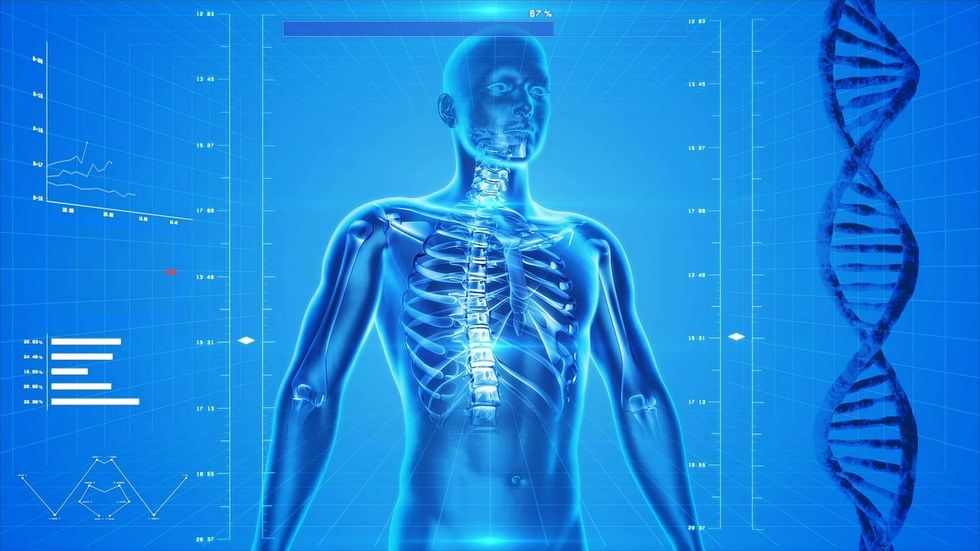Researchers have developed remarkable technologies that may enable prosthetic wearers to control devices using their minds.
Ongoing research regarding interfaces between human brains and computers may help improve the quality of life for many individuals who rely on prosthetics. A report published by the Association of Academic Physiatrists reveals that brain-machine interfaces (BCIs) can make it easier for amputees to perform activities of daily living.
BCIs enable prosthetic users to control mechanical limb replacements using only their minds. However, researchers have a few challenges to overcome before they are available for all amputees to control the movement of their muscles, limbs and prosthetics.
Mind Control – Yeah, That's a Thing Now
Many advanced developments stem from the United States Department of Veterans Affairs, where veterans seek social services, medical treatment and other vital resources. Scientists at Holmes McGuire VA Medical Center started one BCI research project with lower extremity prostheses, the most straightforward system they could conceive. When locked, the prosthesis remains straight, and when unlocked, it can swing freely.
Brain-computer interfaces generate electrical activity in nerve cells and brain waves. Therapists must train BCI users to use specific thoughts to control prosthetic devices.
Scientists can accomplish this by using electrodes that register brain waves placed on patients' scalps. Alternatively, they can implant a chip in the subject's brain that reads electrical activity.
Even after learning how to use prostheses, they're challenging to use for specific tasks. Researchers hope that future BCI research will make it easier for patients to use the devices.
During the VA trial, the program participant learned to activate the unlocking switch for the prosthesis using a BCI. They successfully activated the device 50% to 100% of the time.
The Emergence of the Brain-Computer Interface
In the early 1970s, UCLA researcher Jacques J. Vidal coined the term brain-computer interface. In a sense, electroencephalography (EEG) – which consists of electrodes placed on the skull – represents the first BCI.
In the late 1990s, researchers used EEG technology to read the brain waves of a quadriplegic patient, enabling them to move a computer cursor. Since then, scientists have developed both invasive and noninvasive techniques for reading brain waves.
One example of this research is a study that helped Ian Burkhart successfully recover from a debilitating accident. In 2010, Burkhart injured himself when he dived into a sandbar, crushing his spinal cord and losing the function of several cervical nerves.
After many unsuccessful therapies, Burkhart connected with researchers at Ohio State University who were testing technology that they hope could reanimate the limbs of paralyzed patients.
Eventually, Burkhart became the first patient to regain control of their muscles using a neural bypass connected between his brain and computer using a thick cable. Now, researchers are working with him to repeat this success without a skull implant.
A Real-Life Six Million Dollar Man (Make That $120 Million)
In 2005, Johnny Matheny lost his arm to cancer. Since then, he's become the first person to live with an advanced bioprosthetic.
The John Hopkins Applied Physics Lab developed the technology as part of the Revolutionizing Prosthetics Program. The goal of the DARPA funded project was to create a natural feeling prosthetic that patients can use can control using neural activity. Although this wasn't the first test of its kind, Matheny was the first patient to live with a test prosthetic.
The first version of the prosthetic did have a few drawbacks. For instance, he couldn't get it wet or use it to drive. Still, he was free to push the technology to the limits of its capability and explore the possibilities for its use.
Since then, researchers upgraded the prosthesis with a procedure called targeted muscle reinnervation (TMR) that provided him with more control over the prosthetic device. Later, he also underwent a procedure called osseointegration, where researchers connected the prosthetic device directly to the bone in his upper arm.
Today, Matheny holds the title as the first human cyborg. With one of the most advanced prosthetics in the world, he uses surgical implants in his brain to control the device. Now, DARPA wants to create a similar closed-circuit, high bird synthetic-biological device.
When Matheny first began testing the device, he had a limited range of motion. Now, upgrades to his robotic arm enable him to detect texture, pressure and temperature. If ongoing research such as the John Hopkins experiment proves successful, it will radically transform prospects for cybernetic technology and prosthetic wearers.
Technology pioneers, such as Elon musk, anticipate that BCI technology will be necessary for space exploration. If humans want to keep up with machines, expresses Musk, they will most likely need to merge with them. When they do, says the visionary, technology may redefine the limitations of human physiology.


 StableDiffusion
StableDiffusion StableDiffusion
StableDiffusion StableDiffusion
StableDiffusion Photo by
Photo by  Photo by
Photo by  Photo by
Photo by 
 Photo by
Photo by  Photo by
Photo by  Photo by
Photo by  Photo by
Photo by  Photo by
Photo by 












